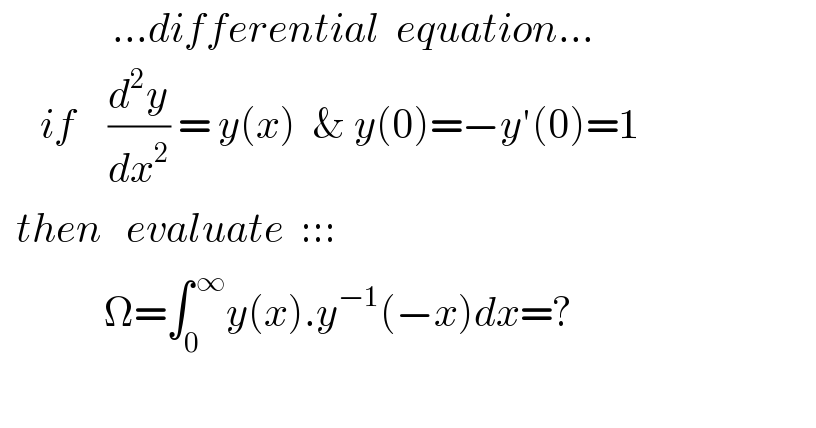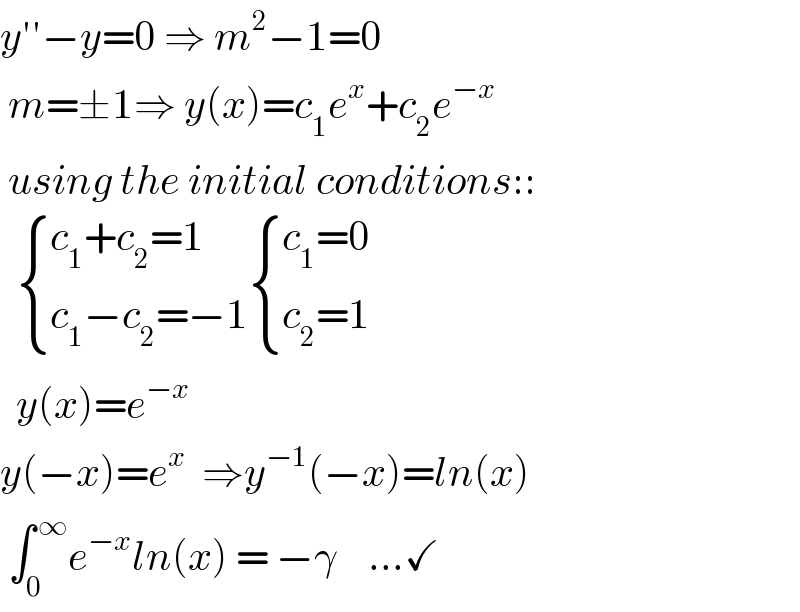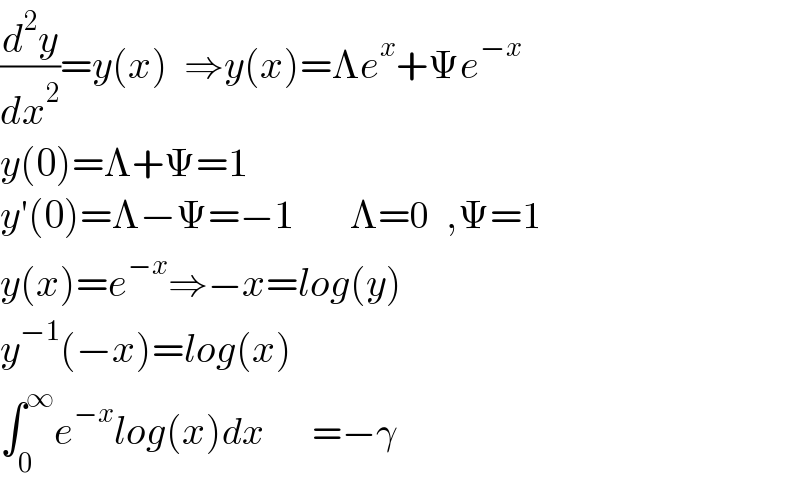
Question and Answers Forum
Question Number 127152 by mnjuly1970 last updated on 27/Dec/20

Answered by mathmax by abdo last updated on 27/Dec/20
![y^(′′) =y and y(0)=1 ,y^′ (0)=−1 r^2 −1=0 ⇒y =ae^x +be^(−x) y(0)=1 ⇒a+b=1 ,y^′ =ae^x −be^(−x) ,y^′ (0)=−1 ⇒a−b=−1 ⇒ { ((a+b=1)),((a−b=−1 ⇒ { ((a=0 ⇒y(x)=e^(−x) )),((b=1 )) :})) :} y(x)=t ⇒x=y^(−1) (t) ⇒e^(−x) =t ⇒−x =ln(t) ⇒x=−lnt ⇒ y^(−1) (x)=−lnx ⇒Ω =∫_0 ^∞ e^(−x) (−ln(−x))dx =−∫_0 ^∞ e^(−x) (iπ +ln(x))dx =−iπ ∫_0 ^∞ e^(−x) dx −∫_0 ^∞ e^(−x) ln(x)dx =−iπ[−e^(−x) ]_0 ^∞ +γ =γ−iπ](Q127162.png)
Commented bymnjuly1970 last updated on 27/Dec/20

Commented bymathmax by abdo last updated on 27/Dec/20

Answered by mnjuly1970 last updated on 27/Dec/20

Answered by Dwaipayan Shikari last updated on 27/Dec/20

Commented bymnjuly1970 last updated on 27/Dec/20

